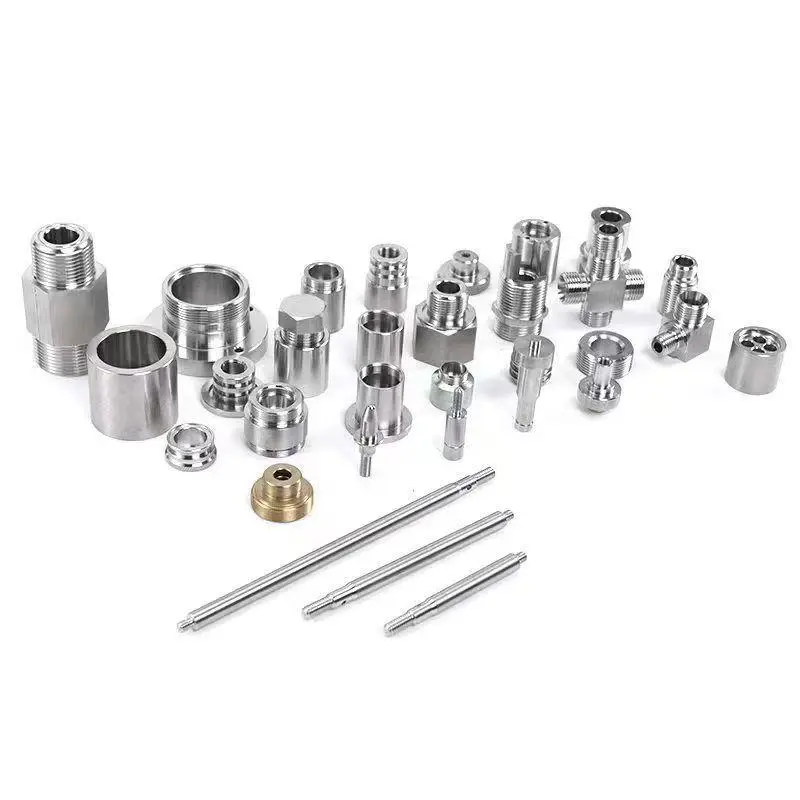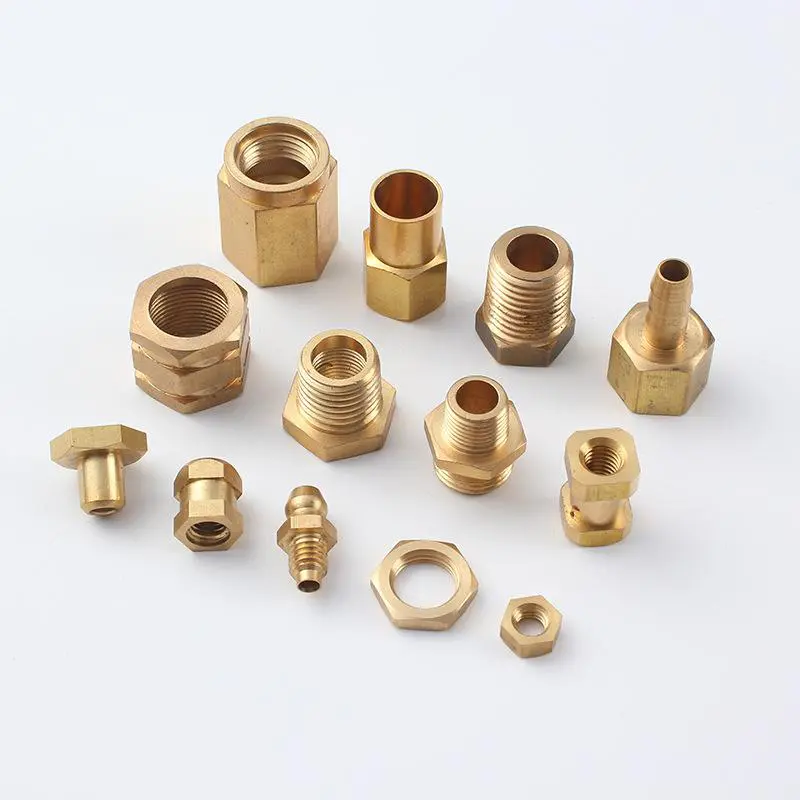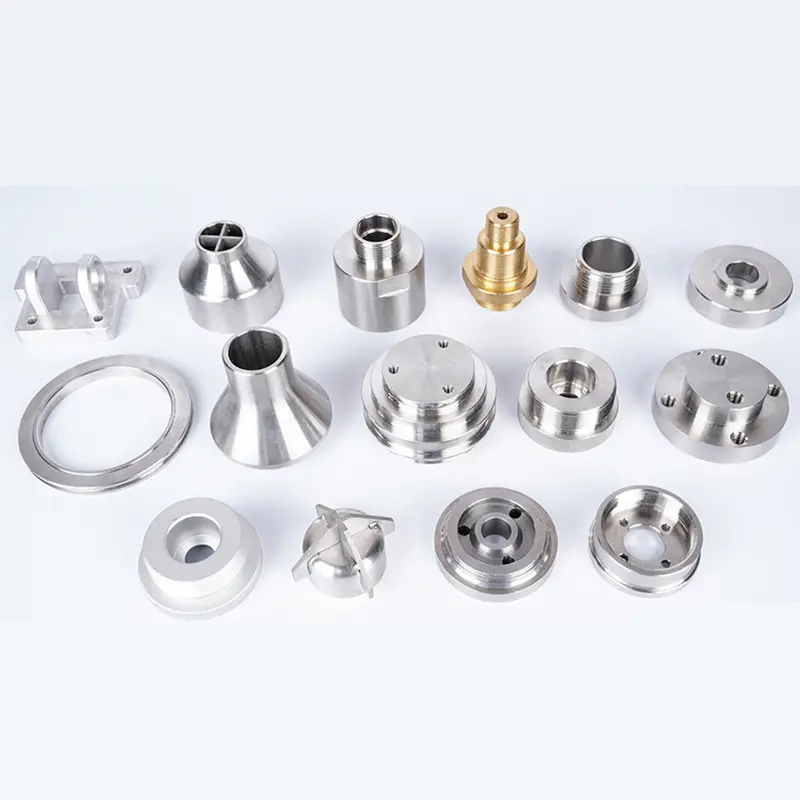Understanding Precision Parts in Machining: Key Insights for Manufacturers
Published Time:
2025-09-11
Precision parts play a critical role in the manufacturing and machining sectors, particularly in mechanical hardware processing and component fabrication. These components are engineered with remarkable accuracy and consistency, which are crucial for the overall performance of machines and systems.
The term "precision parts" refers to components that are manufactured to exact specifications, often within tight tolerances. This level of precision is achieved through advanced machining techniques, including CNC (Computer Numerical Control) machining, which allows for intricate designs and complex geometries. The use of high-quality raw materials, coupled with rigorous quality control measures, ensures that these parts meet the stringent demands of various applications.
One of the key characteristics of precision parts is their dimensional accuracy. This is essential in industries such as aerospace, automotive, and medical devices, where even the slightest deviation can lead to significant operational failures or safety hazards. By adhering to precise measurements, manufacturers can ensure that each part fits seamlessly within assemblies, improving the overall efficiency and reliability of the final products.
In addition to dimensional accuracy, the surface finish of precision parts is equally important. A smooth surface can reduce friction and wear, leading to longer service life and improved performance of mechanical systems. Techniques such as grinding, polishing, and coating can be employed to achieve the desired surface finish, thereby enhancing the durability of the parts.
Applications of precision parts are vast and varied. In the automotive industry, precision machined components are used in engines, transmissions, and braking systems, where reliability and performance are paramount. In the aerospace sector, precision parts are vital for ensuring the safe operation of aircraft, contributing to everything from structural integrity to avionics systems. Similarly, in the medical field, precision machining is crucial for creating instruments and devices that demand the highest levels of accuracy and reliability.
To achieve high-quality precision parts, manufacturers must invest in state-of-the-art machinery and skilled personnel. Continuous training and upskilling of the workforce are essential to keep pace with technological advancements and maintain competitive advantage in the market.
In conclusion, precision parts are indispensable in the manufacturing and machining industries. Their precise fabrication, dimensional accuracy, and superior surface finishes not only enhance the performance of mechanical systems but also ensure safety and reliability across various applications. As manufacturers continue to innovate and evolve, the demand for precision parts will only increase, making it imperative for professionals in this field to understand their significance and the technology behind their production.
The term "precision parts" refers to components that are manufactured to exact specifications, often within tight tolerances. This level of precision is achieved through advanced machining techniques, including CNC (Computer Numerical Control) machining, which allows for intricate designs and complex geometries. The use of high-quality raw materials, coupled with rigorous quality control measures, ensures that these parts meet the stringent demands of various applications.
One of the key characteristics of precision parts is their dimensional accuracy. This is essential in industries such as aerospace, automotive, and medical devices, where even the slightest deviation can lead to significant operational failures or safety hazards. By adhering to precise measurements, manufacturers can ensure that each part fits seamlessly within assemblies, improving the overall efficiency and reliability of the final products.
In addition to dimensional accuracy, the surface finish of precision parts is equally important. A smooth surface can reduce friction and wear, leading to longer service life and improved performance of mechanical systems. Techniques such as grinding, polishing, and coating can be employed to achieve the desired surface finish, thereby enhancing the durability of the parts.
Applications of precision parts are vast and varied. In the automotive industry, precision machined components are used in engines, transmissions, and braking systems, where reliability and performance are paramount. In the aerospace sector, precision parts are vital for ensuring the safe operation of aircraft, contributing to everything from structural integrity to avionics systems. Similarly, in the medical field, precision machining is crucial for creating instruments and devices that demand the highest levels of accuracy and reliability.
To achieve high-quality precision parts, manufacturers must invest in state-of-the-art machinery and skilled personnel. Continuous training and upskilling of the workforce are essential to keep pace with technological advancements and maintain competitive advantage in the market.
In conclusion, precision parts are indispensable in the manufacturing and machining industries. Their precise fabrication, dimensional accuracy, and superior surface finishes not only enhance the performance of mechanical systems but also ensure safety and reliability across various applications. As manufacturers continue to innovate and evolve, the demand for precision parts will only increase, making it imperative for professionals in this field to understand their significance and the technology behind their production.
NewsCenter
Beijing Pafinal Precision Machinery Co., Ltd.
Email:sales@pafinal.com

Address: No. 239 Huanhe South Road, Tianjin Pilot Free Trade Zone (Airport Economic Zone), Tianjin
中企跨境-全域组件
制作前进入CSS配置样式
sales@pafinal.com:
Whatsapp:
在线客服添加返回顶部
图片alt标题设置: PAFINAL
表单验证提示文本: Content cannot be empty!
循环体没有内容时: Sorry,no matching items were found.
CSS / JS 文件放置地




 2025-09-12
2025-09-12


